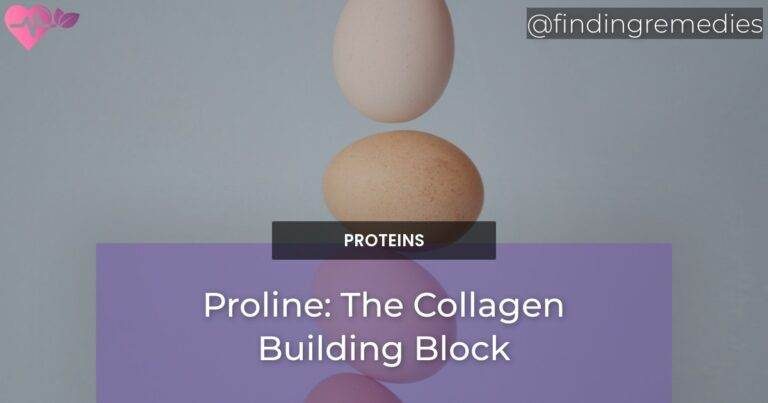Proline, a non-essential amino acid, plays a vital role in the body as the building block for collagen, an essential protein that provides structure and support to various tissues. In this comprehensive article, we will explore the significance of proline in collagen production and its impact on joint health. Additionally, we will delve into proline’s food sources, recommended dosage, and potential side effects. By understanding the importance of proline and its role in maintaining healthy connective tissues, you can make informed choices to support your overall well-being.
Can Valine Supplements Help in Collagen Production Like Proline?
Valine performance supplements boost muscle recovery and repair. While proline is crucial for collagen production, valine also plays a role in supporting overall muscle health. Including valine supplements in your diet may help in collagen production, along with other amino acids like proline.
Proline: The Collagen Building Block
What is Proline?
Proline is one of the twenty amino acids that are the building blocks of proteins. It is considered a non-essential amino acid, meaning our bodies can produce it naturally. However, certain conditions may increase the demand for proline, making it conditionally essential.
Proline Roles in the Body
Proline serves various important functions in the body. It is involved in the synthesis of collagen, the most abundant protein in mammals, which provides structure and support to tendons, ligaments, skin, and other connective tissues. Moreover, proline plays a key role in wound healing, immune system function, and the production of cartilage and other essential molecules in the body.
ALSO READ
Proline for Collagen and Joints
Collagen, often referred to as the body’s scaffolding, relies on proline for its formation. Proline acts as a precursor to hydroxyproline, an amino acid essential for stabilizing collagen structures. By promoting collagen synthesis, proline supports joint health, as it is a major component of cartilage, a protective tissue that cushions joints and enables smooth movement.
Proline Food Sources
While our bodies can produce proline, obtaining it from dietary sources is essential for maintaining optimal levels. Foods rich in proline include lean meats, poultry, fish, dairy products, eggs, soy products, nuts, and seeds. Incorporating these foods into your diet can help ensure an adequate intake of proline.
Proline Dosage
There is no specific recommended daily intake for proline as it is a non-essential amino acid. However, including proline-rich foods in your diet can contribute to meeting your daily requirements. Consulting with a healthcare professional or a registered dietitian can provide personalized guidance based on your specific needs.
Potential Side Effects of Proline
Proline is generally considered safe when consumed in appropriate amounts. However, high doses of proline supplements may lead to gastrointestinal discomfort, including diarrhea and nausea. It is always advisable to follow recommended dosages and consult with a healthcare professional before considering proline supplementation.
Summary and Key Takeaways
Proline, a non-essential amino acid, plays a crucial role in collagen production and joint health. By supporting the synthesis and stability of collagen, proline contributes to the maintenance of healthy connective tissues. Including proline-rich foods in your diet and maintaining an overall balanced diet can help ensure an adequate supply of this essential building block. As with any supplement, it is important to consult with a healthcare professional before considering proline supplementation to determine the appropriate dosage for your individual needs.

